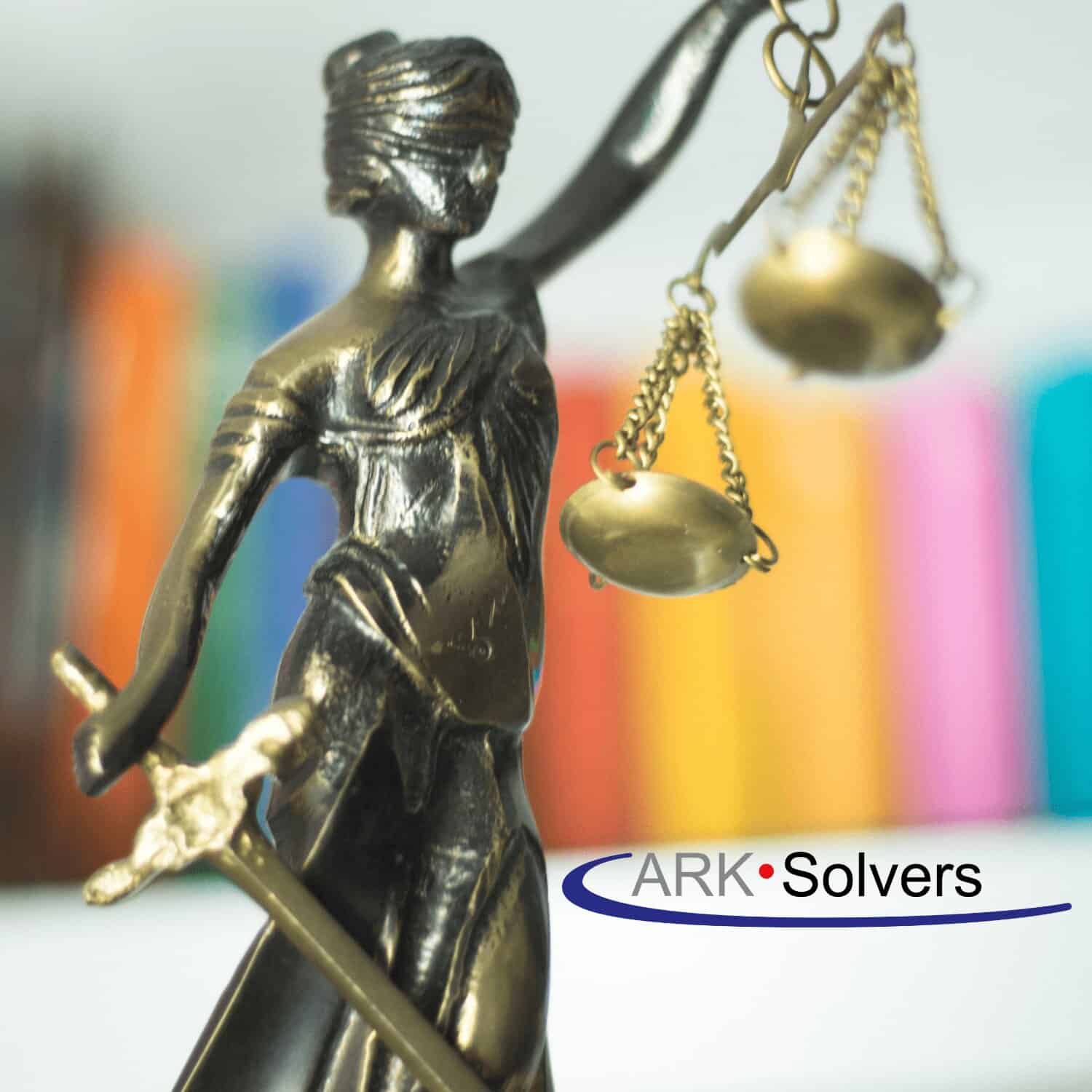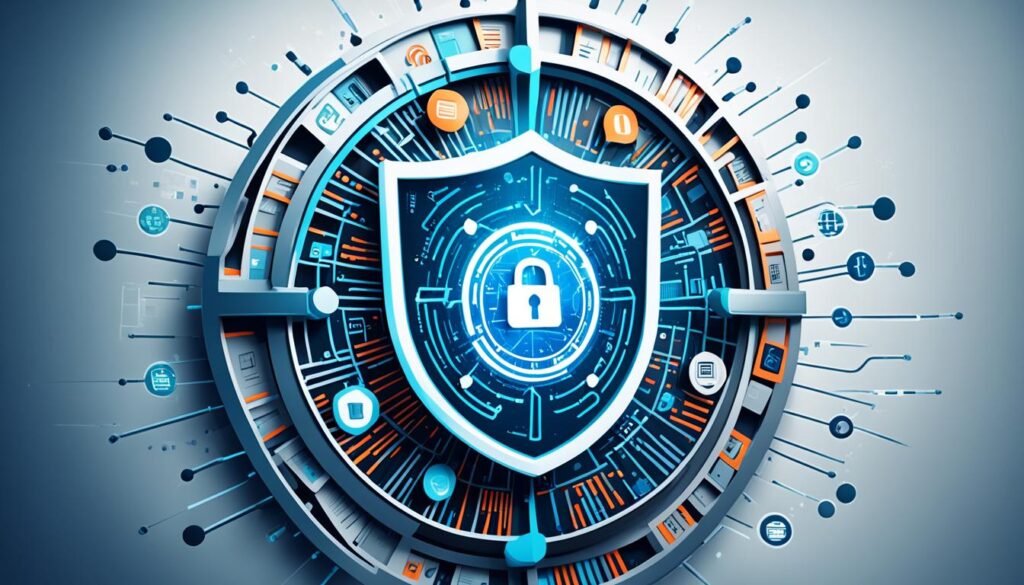Understand The Essential Cybersecurity Strategies for Law Firms

Understand The Essential Cybersecurity Strategies for Law Firms 2024
Are law firms easy targets now in the digital world? Cybercriminals focus on obtaining valuable client information. That’s why having strong cybersecurity methods in place is key. They help protect important data and keep clients’ trust safe.
Today, law firms deal with a lot of private data, ranging from legal documents to financial reports. Such data is highly attractive to cybercriminals, so it’s crucial to have very strong ways to keep it safe. With new cyber threats emerging, protecting data is an ongoing challenge.
Protecting client secrecy is crucial for legal work. If there’s a breach, trust built over years can be lost. That’s why focusing on cybersecurity is a top priority. Law firms should treat it as an essential part of their job. Ensuring good risk management isn’t more than just smart; it is necessary to stay afloat in the digital age.
Read More: What is Cybersecurity? Types, Threats, and Cyber Safety Tips
Key Takeaways
- Cybersecurity is vital for protecting client confidentiality
- Law firms are prime targets for cyber attacks
- Data protection measures are essential for legal practices
- Risk management is crucial in the digital age
- Cybersecurity strategies help maintain client trust
- Ethical obligations include safeguarding digital assets

The Importance of Cybersecurity in the Legal Sector
Today, law firms encounter specific challenges when it comes to cybersecurity. They manage very private information for their clients. They must maintain this data safely and follow strict ethical codes. Hence, keeping this information secure is a critical task for legal practices.
Read More: Why is cyber security important?
Protecting Client Confidentiality
Legal professionals must keep client data confidential. To do this, they utilize advanced encryption technologies, which help safeguard emails, documents, and other client interactions. Additionally, routine checks pinpoint areas where security might be lax.
Maintaining Ethical Compliance
Lawyers are bound by stringent ethical guidelines, including a mandate to protect client data. Meeting these legal obligations demands that law offices have strong cybersecurity measures in place. It’s also vital for firms to stay informed on evolving security standards.
Safeguarding Sensitive Data
Legal offices deal with a lot of sensitive information. This can range from financial details and business secrets to personal records. If there’s a data breach, the repercussions can be severe. Legal firms might face trust loss, reputation harm, and even legal penalties.
Therefore, law firms must focus heavily on cybersecurity. They should uphold the highest information security standards, which means they must regularly check for security weak spots and strictly adhere to security regulations.
Read More: Different Types of Cyber Security: A Comprehensive Guide
Cybersecurity Strategies for Law Firms: A Comprehensive Approach
Law firms must use many layers of cybersecurity to keep client data safe. This includes using technical tools, setting rules, and following certain steps, which build a strong defense against online dangers.
Network security is very important. Companies should use firewalls and systems that detect intrusions and check their security often. These steps help keep their digital world safe. Encryption is also key. It ensures data is safe, whether it’s sitting still or moving.
Knowing the risks is crucial, too. Law firms need to find places where they could be attacked. Then, they create detailed plans to protect those spots. This way, they are ready for new cyber threats as they appear.
It is also vital to ensure that all employees are trained in cybersecurity. Everyone must know how to keep the firm secure. Training covers spotting fake emails, handling secret info well, keeping passwords safe, and using phones and other devices securely.
Ark Solvers is great at making custom plans to protect legal firms online. We assist with putting these strategies in place. This protects your client’s data and keeps your firm’s name safe.
Read More: What is Network Security? Definition, Importance, and Types
Implementing Robust Data Protection Measures
Law firms must prioritize data protection to keep client information safe and build trust. Strong safety measures are a must in today’s world.
Encryption Technologies for Secure Communication
Encryption is key to keeping data safe as it moves. Lawyers should encrypt emails, transfers, and client areas from end to end. This way, only the right people can see private information.
Access Control and Identity Management
It is very important to have tight control over who can see data. Law firms need strong systems to decide who gets access. Multi-factor sign-in and special access rules help make things safer.
- Implement strong password policies
- Use biometric authentication when possible
- Regularly review and update access permissions
Read More: What is Identity and Access Management?
Secure Cloud Solutions for Law Firms
For today’s law offices, secure clouds are a key need. Pick a cloud service that has strong safety checks and follows the legal rules. With a safe cloud, teamwork grows while data is well protected.
These steps can make a big difference for law firms. They help keep the rules and guard against online dangers. This protects the info clients trust them with.
Risk Management and Incident Response Planning
Law firms need to focus on managing risks and planning for incidents. This is to keep client data safe and follow ethical rules. Being prepared helps spot dangers early and lessen the harm from security breaches.
To manage risks well, start by checking your firm’s digital assets and where they are weak. This means looking at your network, software, and how you store data. Knowing your weak spots lets you add special security steps. These steps can stop phishing and make communication safer.
Here are important parts of a solid incident response plan:
- Clearly defined roles and responsibilities
- Step-by-step procedures for breach containment
- Communication protocols for clients and stakeholders
- Regular testing and updates to the plan
Law firms must regularly check for security problems and do tests to find weak points. This way, they can avoid breaches and keep up with rules. Getting help from people who know about cybersecurity is a good idea. They can help make plans to lower risks and deal with incidents well.
A good response plan can cut the money and bad talk that follows a breach. It’s important to invest in plans that handle risks and incidents. This keeps clients happy and protects your firm’s name in today’s tech-heavy world.
Employee Training: The First Line of Defense
In the world of cybersecurity, employee training is a key shield. It protects law firms against digital threats. These best practices educate staff about risks and how to avoid them. Despite these efforts, employee mistakes remain a top cause of data breaches, so training programs are crucial.
Read More: Importance of Cybersecurity for Remote Employees
Recognizing Phishing Attempts
Phishing attacks are a big concern for law firms. It’s important to teach employees to notice odd emails and links, double-check who sends them emails, and be wary of requests for quick, sensitive info. Running drills on phishing can ensure everyone stays sharp.
Read More: What Is Phishing? – Definition, Types of Attacks, Examples
Best Practices for Password Management
Strong passwords are at the heart of law firm security. Employees should learn to create complex, unique passwords for each login. Giving them tools like password managers helps, as it prevents them from using easy-to-guess passwords. Plus, two-factor authentication boosts security even more.
Handling Sensitive Information Securely
Law firms regularly handle very private data. Training must include how to share files and encrypt important documents securely. It also covers safely getting rid of papers. Every worker needs to know why these steps are vital. They keep the firm’s reputation intact and align with the law.
Read More: Who needs cyber security?
FAQ
Why is cybersecurity so important for law firms?
Law firms deal with very private client info and secrets. This makes them a big goal for hackers. If a hacker gets in, it can be a mess. They could lose money, their name might be hurt, and they could face legal trouble. Good cybersecurity helps keep secrets safe, meets ethical rules, and protects important data.
What are some common cybersecurity threats faced by law firms?
Law firms often face dangers like phishing, ransomware, and data theft. These can compromise client information, stop work, and cause big problems, which is why they need strong defenses.
What are the key components of a comprehensive cybersecurity strategy for law firms?
For a good defense, law firms should use tools like encryption and control who sees which data. They also need plans to manage risks and react fast if there’s a breach. Training staff is a must, along with keeping networks tight and checking for weak points often.
How can encryption technologies help law firms protect client data?
Encryption turns sensitive data into a secret code that only the right people can read. This protects the data both when it’s sent and while it sits somewhere, so even if hackers try, they can’t make sense of it.
Why is employee training crucial for law firm cybersecurity?
Workers are the first defense against cyberattacks. Training them well means they can spot fake emails, use passwords safely, and protect secrets, keeping the firm safer.
How can Ark Solvers assist law firms in enhancing their cybersecurity posture?
Ark Solvers offers special ways to guard law firms from online threats. They put up strong shields to protect data. They’re experts in making sure firms are ready to face today’s cyber risks and meet ethical standards.
What are some best practices for secure communication in law firms?
Sending secret messages in the right way can help a lot. Use emails that turn info into secret codes, and always check who you’re sharing secrets with. Avoid risky Wi-Fi for big secrets, too.
How can law firms ensure regulatory compliance regarding data protection and cybersecurity?
Firms need to follow the rules like GDPR and the American Bar Association’s advice. They should have strong protections, check for risks, and keep good records to show they’re doing their best to play by the rules.


